Description
Genus: Imleria
- Genus 2: Boletus
Species: pallida
- Species 2: pallidus
Common Name: Pallid Bolete
Tells: White cap browns with age. White pores age yellow to greenish-yellow and bruise an odd gray-green that fades to grayish brown.
Other Information: Cap flesh may slowly stain pinkish or bluish. White stem develops brown streaks by the base as it ages, sometimes w/ yellow band by the very top or red by the very base. Netting is possible but rare. Stem may slowly bruise blue. May have a slightly bitter taste. Pores may bruise erratically and sometimes not at all in younger specimens.
Science Notes: DNA testing moved this species from the holding-tank version of Boletus into a new genus, as of early 2020. The species name changed for Latin’s required gender consistency.
Edibility: Good
CHEMICAL TESTS:
- NH4OH (Ammonia): Cap surface turns pale rusty orange. Cap flesh and pore surface turn blue-green.
- KOH: Cap surface, flesh, and pore surface all turn rusty orange.
- FeSO4 (Iron Salts): Cap surface and pore surface both turn pale rusty orange. Cap flesh does not react.
Links:
 |
0 |  |
318 |  |
136 |  |
131 |




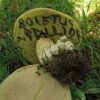
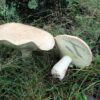
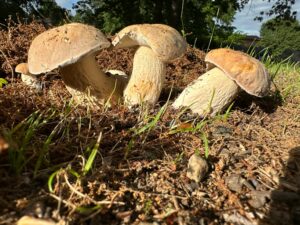
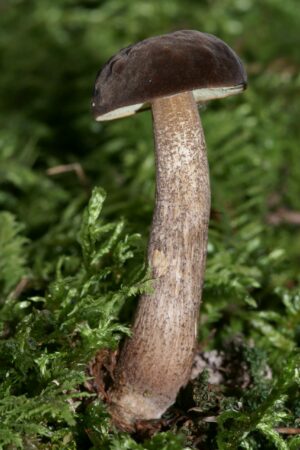
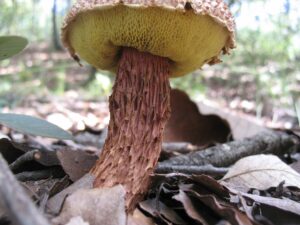
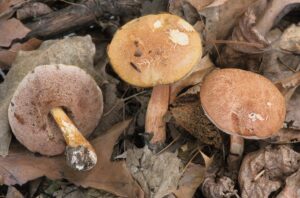
Got something to discuss?